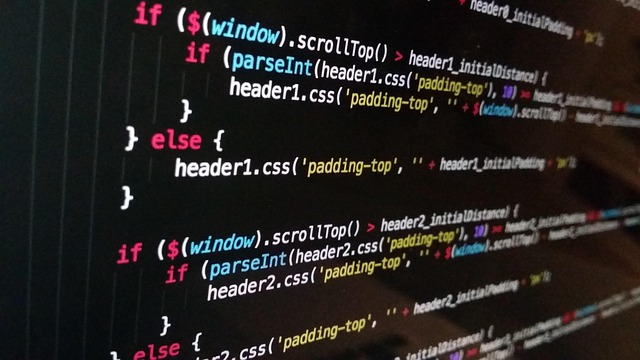Understanding Video Game Testers: Roles and Responsibilities
Understanding video game testers provides a glimpse into the essential process that ensures games are fun, functional, and free of glitches. Testers play through games carefully, examining gameplay, spotting bugs, and evaluating overall quality across different platforms. Their work combines attention to detail, problem-solving, and technical knowledge, making it a critical part of the game development process. By exploring what testers do and how they assess games, readers can gain insight into the meticulous efforts that go into delivering polished and enjoyable gaming experiences.

Video game testing represents a crucial phase in game development where specialized professionals methodically evaluate games to ensure they function correctly, deliver engaging experiences, and meet quality standards. Game testers work diligently to identify bugs, assess gameplay mechanics, and verify that the final product aligns with the developers’ intentions. Their contributions, though often overlooked, are fundamental to creating polished gaming experiences that satisfy players and protect developers’ reputations in a competitive industry.
The Importance of Video Game Testing
Video game testing serves as a critical quality control measure in the development process. Without thorough testing, games may reach consumers with serious flaws that impact playability, from minor graphical glitches to game-breaking bugs that prevent progression. These issues can significantly damage a studio’s reputation and financial performance. Professional testing helps identify problems early, when corrections are less costly and time-consuming to implement.
Beyond bug detection, testers provide valuable feedback on gameplay elements, including difficulty balance, control responsiveness, and overall entertainment value. They represent the player’s perspective before the game reaches the market, helping developers refine experiences to match target audience expectations. This feedback loop between testers and developers often results in substantial improvements to the final product.
Key Skills and Techniques in Game Evaluation
Effective game testers possess a unique combination of analytical thinking, attention to detail, and technical knowledge. They must methodically approach testing with both structured protocols and creative problem-solving. Communication skills are equally important, as testers need to clearly document issues and articulate problems to development teams in actionable ways.
Testable knowledge of game development processes and programming concepts helps testers understand how different systems interact, making them more effective at identifying the root causes of bugs. Familiarity with testing methodologies—including black box testing, regression testing, compatibility testing, and load testing—allows them to comprehensively evaluate different aspects of game performance.
Patience and persistence are essential traits, as testing often involves repetitive tasks and methodical exploration of game environments. The ability to maintain focus while performing the same actions repeatedly helps ensure thorough coverage of all game elements and scenarios.
Identifying Bugs and Gameplay Issues
Game testers employ systematic approaches to uncover various types of bugs. These include functional bugs (features not working as intended), visual glitches (graphical anomalies), performance issues (frame rate drops or loading problems), and audio bugs (sound synchronization issues or missing audio). Testers must also evaluate collision detection problems, where game objects interact incorrectly with environments or other objects.
Documentation is a critical aspect of the bug identification process. Effective bug reports include detailed descriptions of the issue, steps to reproduce the problem, the environment in which it occurred (hardware specifications, game settings), and severity classifications. Many testing teams use specialized bug tracking software to organize findings and monitor resolution progress.
Reproducibility verification is another key responsibility—testers must determine whether bugs occur consistently or only under specific conditions. This information helps developers prioritize fixes and understand the scope of problems they’re addressing.
Ensuring Quality Across Platforms
Modern games often release simultaneously across multiple platforms—consoles, PCs, mobile devices, and cloud gaming services—each with unique hardware configurations and operating environments. Cross-platform testing verifies that games perform consistently regardless of where they’re played, with testers checking for platform-specific issues and optimization problems.
Compatibility testing extends to various hardware configurations within platforms, particularly for PC games where the range of potential system specifications is vast. Testers must verify games function properly across different processors, graphics cards, RAM configurations, and operating system versions. This process often involves maintaining testing environments with multiple hardware setups.
Localization testing ensures games properly support multiple languages and cultural considerations, including text display, voice acting synchronization, and culturally appropriate content. Accessibility testing verifies games can be enjoyed by players with various disabilities through features like customizable controls, subtitle options, and color blindness modes.
Career Paths and Industry Requirements
Entry into game testing typically begins with quality assurance (QA) tester positions, which may be contract-based or temporary roles during development crunch periods. These positions require strong analytical skills and gaming knowledge but often have lower educational barriers compared to other game development roles. Many successful testers have backgrounds in computer science, game design, or related fields, though practical skills and attention to detail are frequently valued over formal education.
Career progression paths include advancement to lead tester positions, specialization in particular testing methodologies, or transitions to related roles in game design, production, or community management. Some testers develop expertise in specific genres or platforms, becoming valuable specialists within development teams.
The working environment varies significantly between studios, with some maintaining in-house testing teams while others outsource to specialized QA companies. Hours can be irregular, particularly as games approach release deadlines, with extended testing sessions common during crunch periods.
Video game testing represents an essential quality assurance function that directly impacts player satisfaction and product success. While often perceived as simply “playing games for a living,” professional game testing requires methodical approaches, technical knowledge, and persistence. Testers contribute significantly to game development by identifying issues before release, providing player-perspective feedback, and helping ensure consistent experiences across platforms. Their work, though sometimes overlooked, remains fundamental to delivering the polished gaming experiences that players expect in today’s competitive market.




